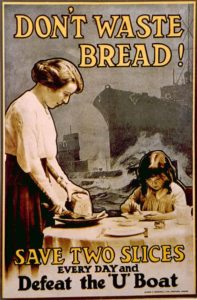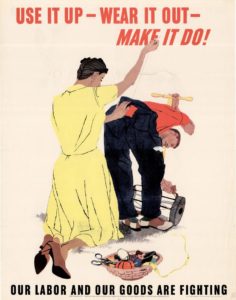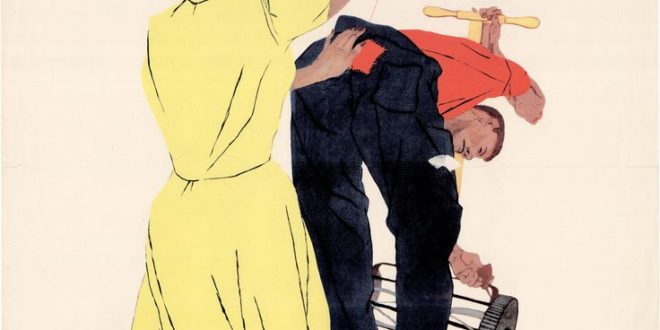Do you still utilise some of the frugality tips you or your family might have picked up during times when items weren’t as plentiful? Even when food and other items are abundant it’s good to remember these tips. Waste not, want not after all.
J.S. of Auckland asks, “I remember hearing of an old WWII recipe to bulk out butter to make it go further. Does anyone have a copy of that recipe to share? It would be very handy as the price of butter is now getting out of hand.”
To find the answer we consulted an expert, Lillian, who is frugality personified. Lillian was an adult during WWII and knows every trick in the book when it comes to turning a penny’s worth of food in a pound’s worth of goodness.
Lillian’s reply to J.S. is that there were quite a few ways of making butter go further by adding water, milk, and even cornflour. These days, the simplest way is to “combine warm water and butter in equal parts by putting the butter into a mixer on low speed and slowly adding warm water until thoroughly mixed and smooth. Store it in the usual way – it will get as firm as regular butter.”
So there you are – a WWII trick that still works today!
We use the same principle but with olive oil instead of water to make a delicious spread for bread or hot vegetables. Since we grow our own olives, we enjoy the real pleasure that comes from using something home grown.
 According to Lillian during the war years, there was a national campaign promoting frugality so spare food could be sent to those in active service and savings could be invested in war bonds to fund the war effort. In searching through the archives we came across a number of war posters that were part of a nationalistic campaign promoting frugality. Here are some we thought may be of interest.
According to Lillian during the war years, there was a national campaign promoting frugality so spare food could be sent to those in active service and savings could be invested in war bonds to fund the war effort. In searching through the archives we came across a number of war posters that were part of a nationalistic campaign promoting frugality. Here are some we thought may be of interest.
- “Build your meals around potatoes. Eat potatoes every meal to save wheat.”
- “Serve your country by saving money.”
- “Dig for victory – grow your own vegetables.”
- “War gardens for victory.”
- “Nobody likes to see good food go to waste. Do your share to save it.”
- “Save a loaf a week. Help win the war.”
- “Housewives! Save waste fats for explosives!”
- “Have a victory garden.”
- “The kitchen is the key to victory. Eat less bread.”
- “They need more food. Plant more beans. Help feed those freed from axis rule”
- “Patriots. Use cornmeal. It cannot be shipped. It is splendid eating. It is cheaper than wheat flour. It saves wheat.”
- “Sow the seeds of victory. Plant and raise your own vegetables. Every garden a munition plant.”
- “Buy fresh fish. Save the meat for our soldiers and allies.”
- “Don’t waste bread. Save two slices every day and defeat the ‘U’ boat.”
- “If you don’t need it don’t buy it.”
- “Use it up – wear it out – make it do!”
- “Am I proud! I’m fighting famine by canning food at home.”
- “Get in the scrap. America’s war industries need metals, paper, old rags, rubber. Get it back in war production.”
- “Food. Buy it with thought. Cook it with care. Serve just enough. Save what will keep. Eat what would spoil. Home-grown is best.”
- “Millions of troops are on the move. Is your trip necessary?”
How true some of those slogans still are today!
While asking Lillian about the butter, we had one of those “good old days” chats, reflecting on how things had changed in her lifetime. She mentioned that in their village there was a man known as a knocker-upper. As you can imagine, our curiosity was piqued.
 It transpires that being a ‘knocker-upper’ was a profession before alarm clocks became reliable and affordable. Their job was to knock on the windows of their clients to make sure they were awake at the agreed time. In smaller communities, the local bobby would sometimes take on the role. One can imagine that discretion may have been required from time to time, which probably explains why it was regarded as a profession!
It transpires that being a ‘knocker-upper’ was a profession before alarm clocks became reliable and affordable. Their job was to knock on the windows of their clients to make sure they were awake at the agreed time. In smaller communities, the local bobby would sometimes take on the role. One can imagine that discretion may have been required from time to time, which probably explains why it was regarded as a profession!
While some things, like knocker-uppers, have changed since the war, it seems that the principles of frugality have remained just as relevant today as they were back then!
Do you have any tips that have been passed down or frugal tips of your own we’d love to hear them in the comment section below.
By Frank and Dr Muriel Newman. Read more Oily Rag articles here.
You can contact the Oily Rag community via the website at oilyrag.co.nz or by writing to Living off the Smell of an Oily Rag, PO Box 984, Whangarei.









Kath - 9 years ago
White vinegar has many different uses as a cleaner, add to washing machine, add to floor wash. Baking soda will clean stains, clean sinks, clean just about anything, we used them in wartime.